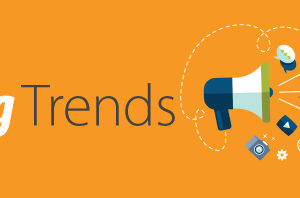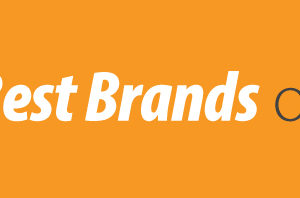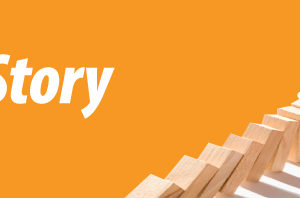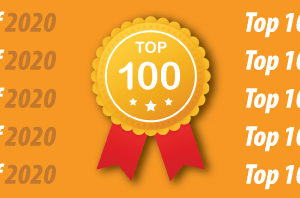
Who would have thought that a pandemic could be a learning experience for many companies? During this time, companies had to get creative on their branding.
Many companies were able to learn and grow from this pandemic, while some brands, unfortunately, did not make it.
As reported by Forbes on September 9th, 2020 by Bill Chemero.
How Brands Have Reacted To The Pandemic
Always look for the silver lining, even during a pandemic. Because it’s there, and even when things are going very wrong, we can always learn from what goes right.
There is no question that we’re living in some very worrisome, anxiety-ridden times. As the chief development officer of an international fast-casual burger franchise, I can safely say that I think franchises in general have a lot to be proud of in how they’ve handled the Covid-19 crisis. Of course, I may be biased, but I’ve had a first-row seat to how franchises have managed this pandemic. I think that one can definitely make a solid argument to prospective franchisees that if you’re going to start a business, it is a huge help to be part of an extensive system like a franchise. Right now, the franchise model seems stronger than ever.
In the last few months …
Franchisors immediately became pandemic-management partners to their franchisees.
Across the country, almost overnight, franchises began an operational pivot and transformed their establishments to serve the public better — and to keep them safe.
Some franchisors, like BrightStar Care, were more successful than others at getting personal protective equipment to their franchisees; if you were a health care franchise, you likely had a leg up on virtually every other industry. But, still, across the world, I’ve seen franchisors (including Jack in the Box) distributing essential PPE and social-distancing products, such as masks and face shields, digital thermometers, social distancing floor stickers, Covid-19 protocol guidelines and messaging to their guests, and hand sanitizer bottles to their franchisees, through their proprietary supply-chain systems.
Franchisors became information centers for their franchisees.
Many franchisees were able to stay open for business provided they offered a safe way to remain open for their team members and the public. But how?
Again, franchisors were able to lead the way.
For instance, people were still allowed to come into many restaurants around the country to pick up food, and at some restaurants, indoor dining is allowed. But at Wayback Burgers, and many other restaurants around the nation, if guests were dining inside a restaurant, they didn’t have access to condiments, utensils, napkins, drinks and other self-serve items. The team members had removed them because allowing those to remain where people congregate and handle items would have potentially put guests at risk.
Even at restaurants where people could dine in, food was often wrapped and bagged, to ensure meals were protected from the potential spread of germs on public countertops (i.e., near the register where people pick up their meals) for even a second.
These health safety plans were developed using procedures recommended by the Centers for Disease Control and Prevention (CDC), and while mom and pop operations were surely crafting their own strategies for keeping people healthy, I have to think that franchisees appreciated not having to spend the time and money developing them.
Franchisors shifted focus for local franchisees.
Weekly calls with location owners became discussions about the Paycheck Protection Program, rent reduction, and marketing efforts to drive sales. The Paycheck Protection Program is a loan designed to provide a direct incentive for small businesses to keep their workers on the payroll. Many franchises are considered small businesses. During the height of the business closures, landlords were dealing with the difficult decision of offering rent reduction. Mostly this is an individualized response. Some brands put heads together to offer meal deals to drive sales and keep customers coming through the doors. Wayback Burgers began offering a family meal.
It’s important for franchisees to know that your franchisor will have your back if it’s an ethical and good brand. I’m not suggesting you’ll have a utopia, and that you’ll never disagree. But most franchisors understand that the franchise system is a partnership and that they won’t get very far if their franchisees are weak and struggling.
The business of selling franchises has continued.
This is important unless you want the economy to come to a screeching halt and remain in amber.
A recent survey from franchise software firm FranConnect (via Restaurant Business) determined that almost two-thirds of franchisors have continued to sell franchises throughout the pandemic.
With all of the social distancing and sheltering in place, continuing to conduct business as usual can sound a little crazy. And for some business models that require people to be inside and utilizing a service or product — think entertainment centers where families gather for birthday parties — this is probably not the time to try for new franchise sales.
If you’re a new franchise without much history or many locations, you also might want to hold steady for now and focus on maintaining your existing locations and improving your business model.
But if your business can thrive in a pandemic, it makes sense to continue to grow. Wayback Burgers, for instance, has hosted virtual discovery days for interested franchise owners. Meeting through a videoconference doesn’t compare to the real thing of meeting with the corporate leadership team face to face at their headquarters, but you do what you have to do.
That, I’d say, is what has been so inspiring about the franchise model when it has come to this pandemic. Franchisors and franchisees have done exactly what they’ve had to do but what isn’t always easy to do. They have been flexible, innovative and quick to share best practices, and when franchisors and franchisees can do that, along with keeping people employed, keeping families fed and contributing to everyone staying healthy, happy, and hopeful. That’s more than a silver lining. That’s gold.
Many companies were able to adapt to the pandemic and make changes to their companies.
Additional Branding through a Pandemic Resources
Branding in the Pandemic – What Works, What Doesn’t (Forbes)




